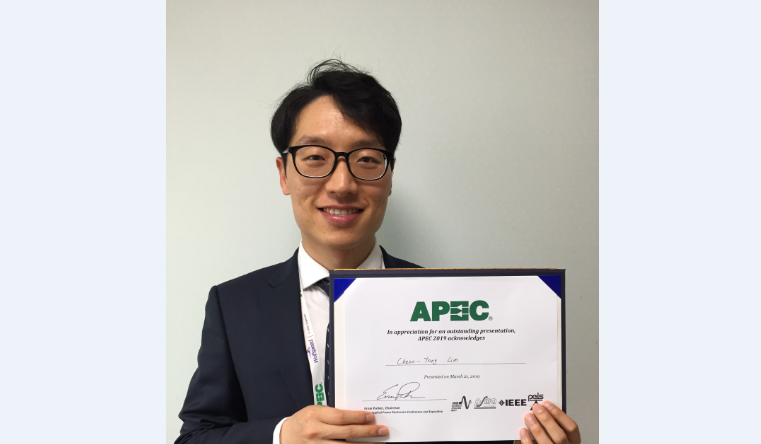
Ph.D candidate Cheon Yong Lim (Advisor: Gun-Woo Moon) won an Outstanding Presentation Award at IEEE International Applied Power Electronics Conference (IEEE APEC 2019)
The paper presented at the conference was titled ‘New Phase-Shifted Full-Bridge Converter Using Center-Tapped Clamp Circuit in On-Board Charger for Electric-Vehicle’ (Author: Cheon Yong Lim, Jung Kyu Han, Moo Hyun Park, Keon Woo Kim, and Gun-Woo Moon) . He proposed a new circuit for use in an electric vehicle charger and enhanced 1.4% of efficiency, 10% of power density, and reduced 40% of cost compared to the conventional product.

– Demonstration Session Certificate of Recognition (award granted to the best two school demos released by ISSCC)
“UNPU: A 50.6TOPS/W Unified Deep Neural Network Accelerator with 1b-to-16b Fully-Variable Weight Bit-Precision”
Lee Jin-Muk, Kim Chang-Hyun, Kang Sang-Hyun, Shin Dong-Ju, Kim Sang-Hyup (Professor Yoo Hoi-Jun)
– Demonstration Session Certificate of Recognition (award granted to the best two school demos released by ISSCC)
“A 9.02mW CNN-Stereo-Based Real-Time 3D Hand-Gesture Recognition Processor for Smart Mobile Devices”
Choi Seong-Pil, Lee Jin-Soo, Lee Kyu-Ho (Professor Yoo Hoi-Jun)
– Student Research Preview (SRP) Outstanding Poster Award (best poster presented in the ISSCC SRP)
“A 4.54uW, 0.77pJ/c.s. Dual Quantization-Based Capacitance-to-Digital
Converter for Acceleration, Humidity, and Pressure Sensing in 0.18μm CMOS”
Park Su-Jin (Professor Seong-Hwan Cho)
Please accept our sincere congratulations!
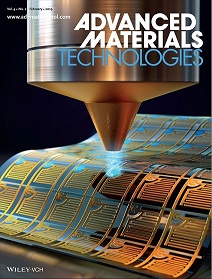
The research of Ph.D. student Kim Seong-Yeon, a researcher in Professor Yoo Seung-Hyup’s lab, was published as a cover article in Advanced Materials Technologies on February 8th.
The title of article is, “Organic Vapor‐Jet Printing with Reduced Heat Transfer for Fabrication of Flexible Organic Devices”.
Organic vapor-jet printing (OVJP) with reduced heat transfer is described by Yoo Seung-Hyup and co-workers. The method realizes direct, ink‐free formation of organic thin‐film patterns on plastic substrates. With a semi‐permanent, stable, low‐emissivity coating based on electroplated gold layers, the proposed OVJP is proven to be highly-effective in the additive fabrication of flexible devices such as the flexible organic tactile sensor array.
This study is expected to be applied to flexible OLED displays and flexible organic electronics manufacturing processes.
<Resource Links>
https://onlinelibrary.wiley.com/toc/2365709x/2019/4/2
https://onlinelibrary.wiley.com/doi/full/10.1002/admt.201800332

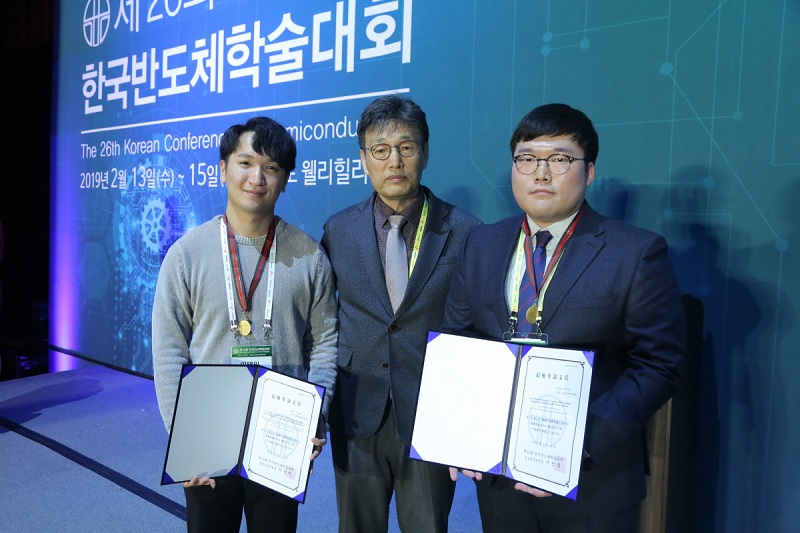
Ph.D. student Tae-In-Lee, a researcher in Professor Byung-Jin Cho’s lab, won the top prize at the 26th Korean Semiconductor Science Congress.
The prize-winning paper was entitled, “EOT scaling (~5.7Å) using Y-ZrO2 gate dielectric in Ge-based element, and reduction of leakage current and interfacial trap.”
Tae-In Lee surpassed the existing material and process method by using an insulating membrane called Y-doped ZrO2 and H2 high-pressure annealing to achieve the world’s highest level of 5.7Å (5.7 nm), and developed an excellent, very low gate structure.
Ph.D. candidate Jae-Young Yoo (Advisor: Prof. Junbo Yoon) was awarded the Outstanding Student Paper Award at the IEEE MEMS 2019.
This award was selected after a thorough examination of 490 student papers in total. First, 18 Outstanding Student Paper Award Finalists were selected by the Society and finally, only the three finalists were awarded the Outstanding Student Paper. This is the first time that a Korean university student has been awarded.
Congratulations to Jae-Young Yoo and Junbo Yoon.
Conference: The 32nd IEEE International Conference on Micro Electro Mechanical Systems (IEEE MEMS 2019)
Date: 2019.01.27 – 2019.01.31
Venue: Coex, Seoul, Korea
Award: Outstanding Student Paper Award
Paper: Maximizing Percolation Effect Using Sub-100 Nm Nano-Valley For High Performance Wearable Transparent Pressure Sensor
Author: Jae-Young Yoo, Min-Ho Seo, Jae-Shin Lee, Kwang-Wook Choi, Min-Seung Jo, Hyeon-Joo Song, and Jun-Bo Yoon
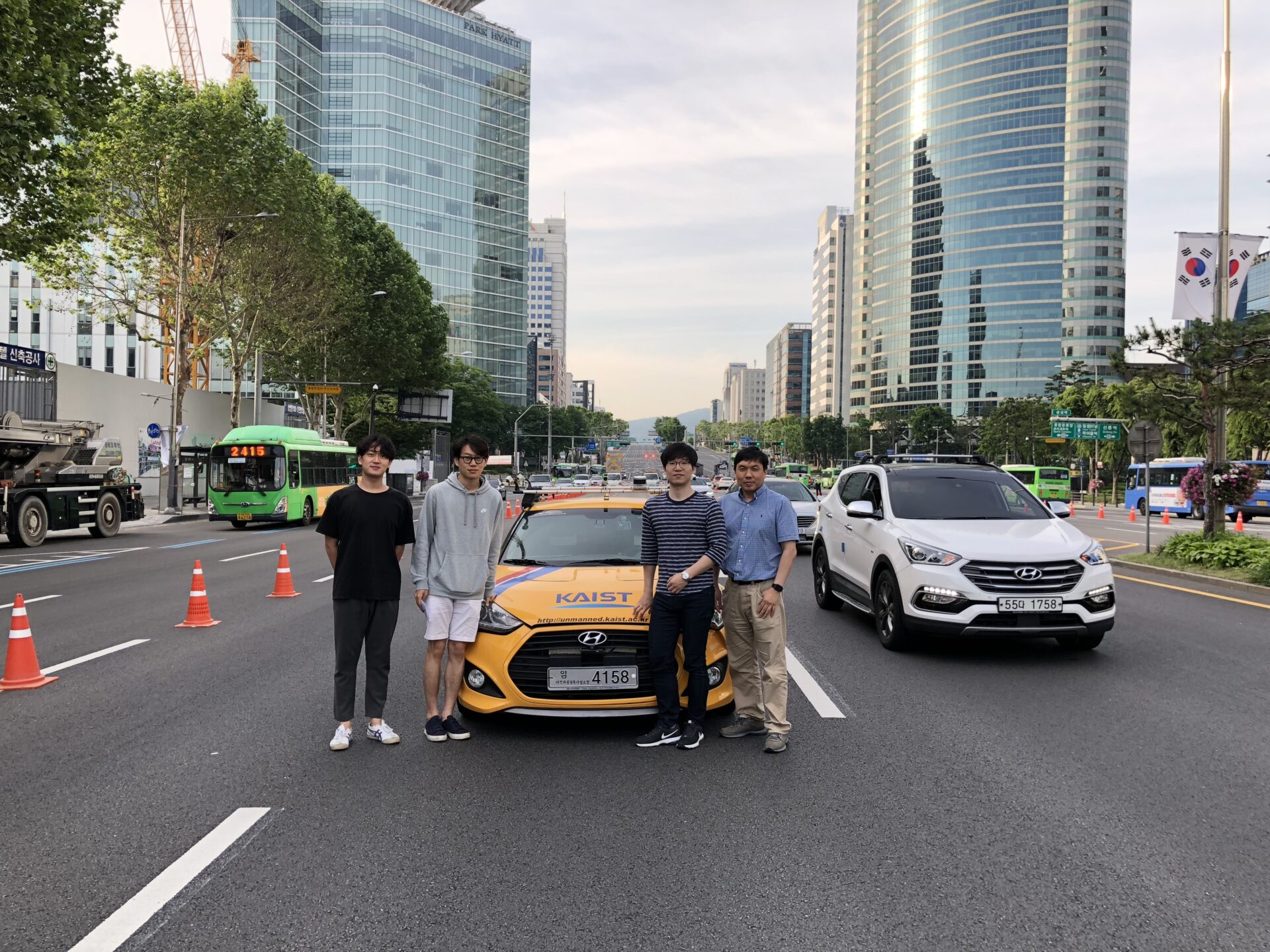
Professor Hyunchul Shim received a commendation from the Minister of Land, Infrastructure and Transport on December 31, 2018 for his contribution to the development of autonomous driving technology.
Hyunchul Sim has accomplished many achievements in the development of the overall autonomic driving technology, such as obstacle recognition and avoidance technology, and he cultivated many experts in related fields in KAIST.
Congratulations to Hyunchul Shim.
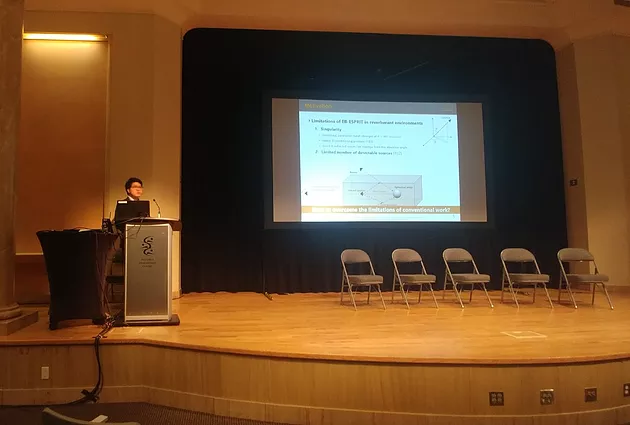
Ph.D. candidate Byeongho Jo (Advisor: Prof. Jung-Woo Choi) was awarded The Best Student Paper in Architectural Acoustics at the 176th Meeting of the Acoustical Society of America.
The title of the paper was ‘Nonsingular EB-ESPRIT for the localization of early reflections in a room’, and Byeongho Jo took the Second Place.
Congratulations to Byeongho Jo and Prof. Jung-Woo Choi.
Conference: The 176th Meeting of the Acoustical Society of America
Date: 2018.11.05 ~ 2018.11.09
Venue: Victoria, BC, Canada
Award: Best Student Paper in Architectural Acoustics – Second Place
Title: Nonsingular EB-ESPRIT for the localization of early reflections in a room
Author: Byeongho Jo and Jung-Woo Choi
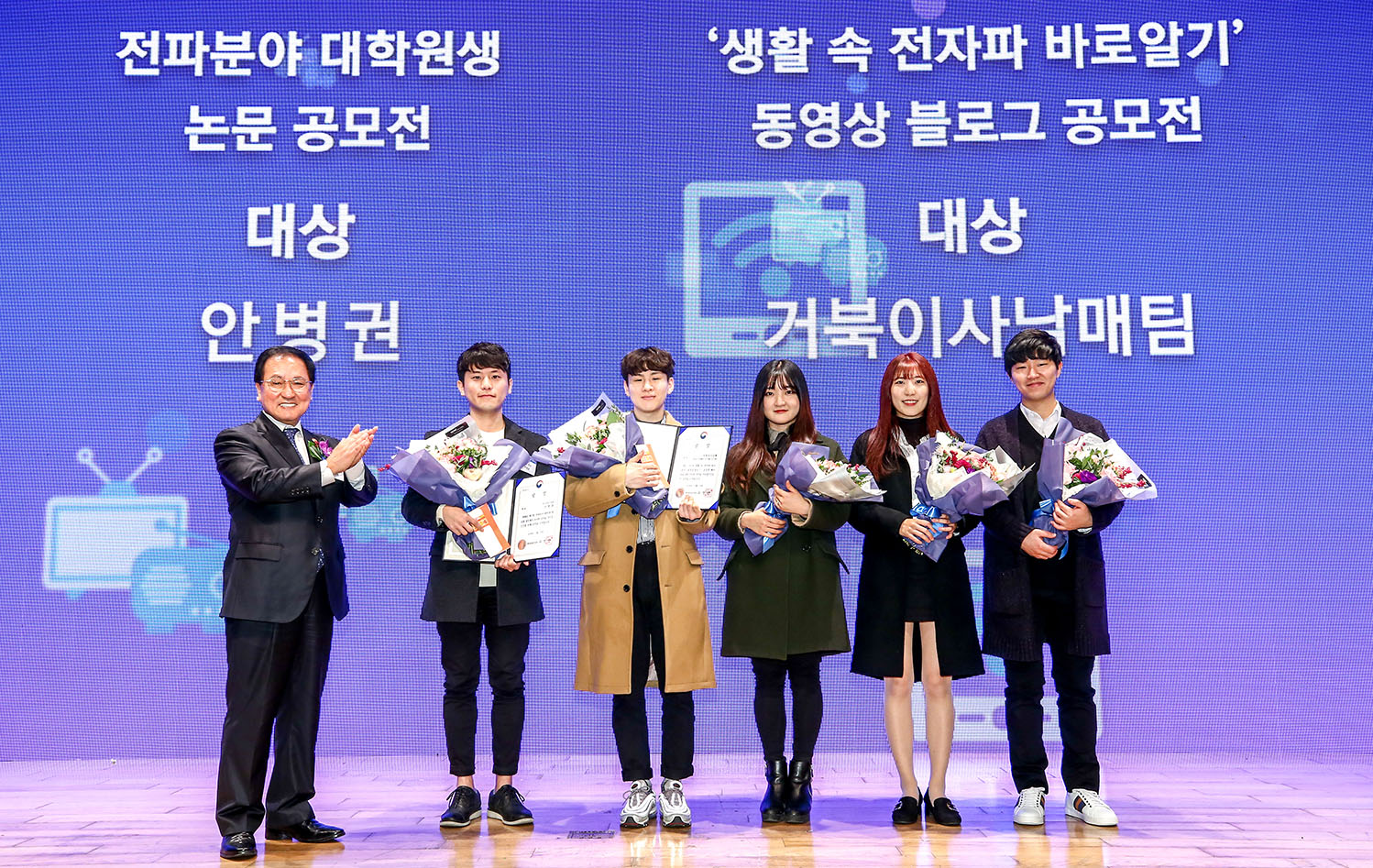
Ph.D. candidate Byungkuon Ahn (Advisor: Prof. Jong-Won Yu) was awarded the Grand Prize at the 17th KIEES(Korea Institute of Electromagnetic Engineering and Science) Paper Awards by Minister of Ministry of Science and ICT.
Congratulations to Byungkuon Ahn and Prof. Jong-Won Yu.
Society: KIEES (Korea Institute of Electromagnetic Engineering and Science)
Date: 2018.11.19
Venue: Seoul, KBIZ grand hall
Award winner: Byungkuon Ahn
Title: Wide-Scanning Phased Array Antenna System Using Pattern Reconfigurable Spherical Dielectric Resonator Antenna
Award title: Grand Prize
Link: http://kiees.or.kr/board/board_view.html?board_idx=1927&page=1&board_id=notice&b_group=comm&search_keyfield=&search_keyword=
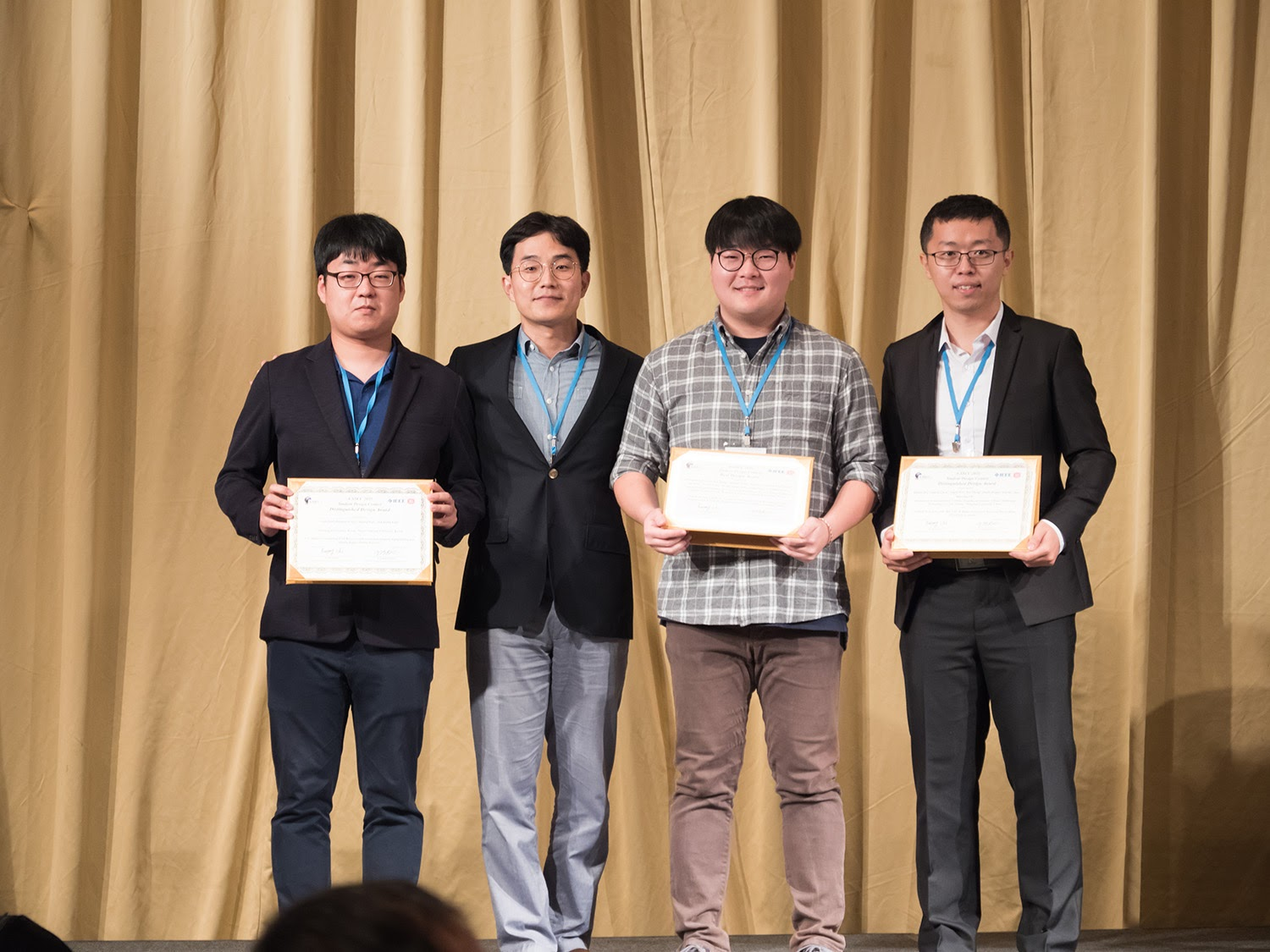
Ph.D. candidate Hyuntak Jeon (Advisor: Prof. Minkyu Je) was awarded the Best student design Award at IEEE A-SSCC (Asian Solid-State Circuits Conference) 2018.
Congratulations to Hyuntak Jeon and Minkyu Je.
Conference: IEEE A-SSCC (Asian Solid-State Circuits Conference) 2018
Date: 2018.11.05-2018.11.07
Venue: Tainan, Taiwan
Award: Best Student Design Award
Title: A 3.9uW, 81.3dB SNDR, DC‐Coupled, Time‐Based Neural Recording IC with Degeneration R‐DAC for Bidirectional Neural Interface in 180nm CMOS
Author: Jeon1, Jun‐Suk Bang2, Yoontae Jung1, Taeju Lee1, Yeseul Jeon1, Seok‐Tae Koh1, Jaesuk Choi1, Doojin Jang1, Soonyoung Hong3, Minkyu Je1
*Affiliation: 1KAIST, Daejeon, Korea; 2Samsung Electronics, Suwon, Korea; 3DGIST, Daegu, Korea
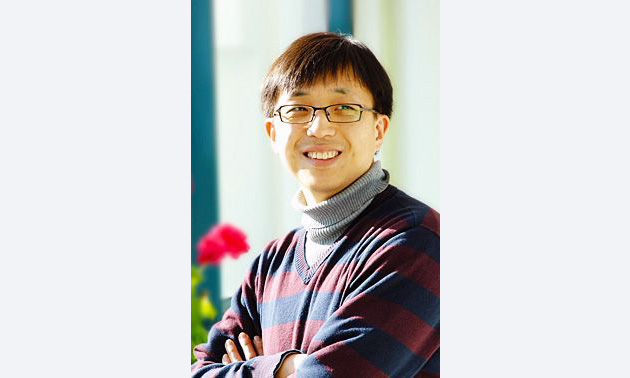
Prof. John Kim was recently inducted into the IEEE/ACM International Symposium on Microarchitecture (MICRO) conference Hall-of-Fame and this is the first time that a researcher from Korean academia is inducted.
MICRO, along with ISCA and HPCA, is considered to be the most prestigious conference in architecture, with MICRO having one of the longest histories as this year’s MICRO was the 51st edition of the conference.
This accomplishment results from that Prof. John Kim is the best researcher in Korea in the field of Interconnection Networks and Parallel Architectures and he published 8 or more papers at the conference.
Prof. Kim was also inducted into ISCA hall-of-fame last year and he is the only researcher from Asia to be elected to the hall-of-fame for both ISCA and MICRO and this fact shows that the excellence of his research is acknowledged in the whole world.

_0.png)




